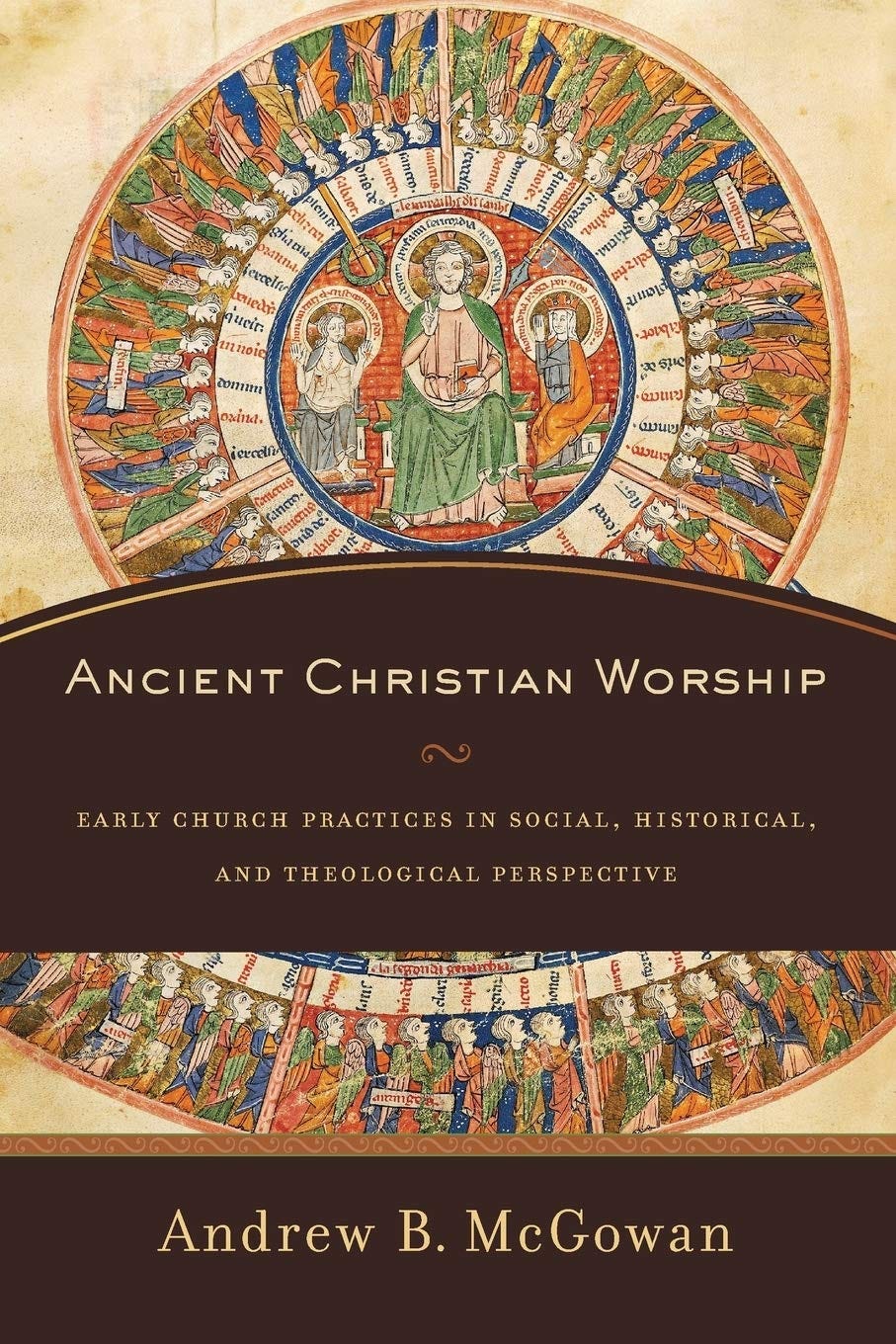I’ve been teaching a seminary course this semester on worship, and I’m having my students read Andrew McGowen’s Ancient Christian Worship: Early Church Practices in Social, Historical, and Theological Perspective (Baker Academic, 2014).
McGowan is an Anglican priest and the dean of the Divinity school at Yale. Ancient Christian Worship introduces students to various Christian worship practices from the New Testament era through 500 A.D. One of the claims McGowan makes that always surprises students is found in his chapter on music:
“Worship” …is sometimes now a way of talking about music. This would have baffled Christians of the first centuries; music was often important for their communal gatherings, as were buildings or food, but music was neither the most central or distinctive aspect of their gatherings nor identified with “worship” as such.[1]
Again, this statement surprises many students.
In American evangelical Christianity, many have reduced the word “worship” to refer to “the music during a worship service.” We call the this music “the worship time,” in contrast to the teaching time, communion, prayers, etc. This has become so endemic in the contemporary church that people seldom question it.
But this is a very recent phenomenon.
In the Bible, and throughout church history, worship has had a far more robust, broad meaning.
Arguably the first act of worship recounted in the Bible is found in Genesis 4, the offerings brought to God by Cain and Abel. The Hebrew word for “offering” here is the word minḥâ, variously translated “offering,” “gift,” “oblation,” and “sacrifice.”[2] Here worship is something set apart and dedicated to God by the worshiper.
Other biblical words for worship focus on bodily posture (Hebrew ḥāwâ “to bow down,” Greek proskuneo, “to fall down,” Greek latreuo, “to work, to serve”).[3]
Consider some of the key biblical passages related to worship:
Come, let us bow down and worship [ḥāwa], let us kneel before the LORD our Maker (Psalm 95:6)
Worship [ḥāwa] the LORD with gladness; come before him with joyful songs (Psalm 100:2).
God is spirit, and his worshipers must worship [proskuneo] in the Spirit and in truth (John 4:24)
Therefore, I urge you, brothers and sisters, in view of God’s mercy, to offer your bodies as a living sacrifice, holy and pleasing to God—this is your true and proper worship [latreia] (Romans 12:1)
Therefore, since we are receiving a kingdom that cannot be shaken, let us be thankful, and so worship [latreuo] God acceptably with reverence and awe (Hebrews 12:28)
None of these passages are about music or singing. All are about posture and communal actions.
So here’s my basic definition of worship: Worship is a communal gathering of God’s people in Christ’s name where they offer themselves to God in praise, prayer, reception of God’s word, and celebration of the sacraments of baptism and communion.
Worship is irreducibly communal. It’s something we do with other believers. We can pray alone. We can read and study the Bible alone. We can even listen to worship music alone. These are all good, but they are not worship. Authentic Christian worship requires other believers, be it just a few or many. The number itself is unimportant.
The focus of worship is not ourselves, though we ourselves are nourished and strengthened as we worship. But the focus is offering ourselves to God. We do this through praise (which is often though not exclusively music), communal prayer, receiving teaching from the Bible, and participation in Christ’s sacraments. These elements of worship are all the means by which we offer ourselves to God.
Worship is about God, not about us. It is not about what we like or dislike. It is not about what makes us feel good or bad. Worship is about God and our offering of ourselves to God.
How can pastors and leaders combat reductionism of worship to music?
I believe a good way to start is with paying attention to our use of language. The words and metaphors we use matter. Here are some words I avoid when talking about worship, along with the words I use instead.
Instead of describing the music time of a service as worship I say music worship.
Instead of band I describe the musicians and vocalists the music worship team.
Instead of the audience I call the people the congregation.
Instead of stage I use the word platform.
I also frequently describe the welcome, teaching, sacraments, prayer time, and benediction as worship as well.
What are some other ways we can broaden people’s imagination of worship?
[1]Andrew B. McGowan, Ancient Christian Worship: Early Church Practices in Social, Historical, and Theological Perspective (Baker Publishing, 2014), p. 111.
[2]Theological Wordbook of the Old Testament (Moody Press, 1980), Vol. 1, p. 514.
[3]Theological Wordbook of the Old Testament, Vol. 1, p. 267; A Greek English Lexicon of the New Testament and Other Early Christian Literature (University of Chicago, 2000) p. 882, 587.





Thanks for sharing. I think of my early church time at my mom’s church in LA (Saint Nicholas orthodox cathedral Christian Antiochuan church) on 3rd street and Alvarado. . You may like to check it out. Their worship covers a lot of those points.
Thank you, Tim, for addressing this common misappropriation of the expansive word, one that means so much more than many people have come to understand.